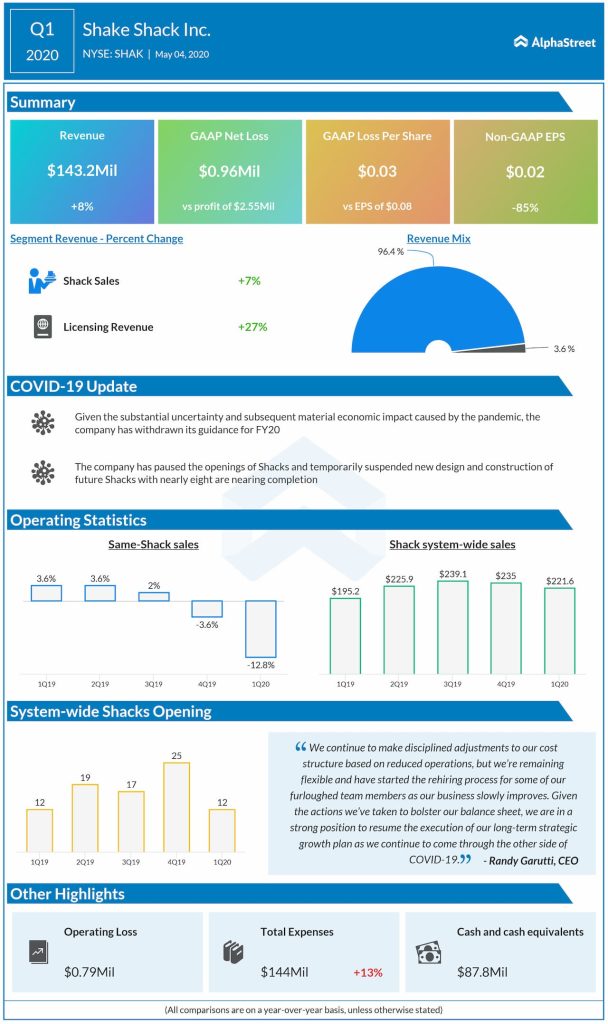Same-Shack sales decreased 12.8% for the quarter. During the week ended March 25, same-Shack sales hit the lowest point with a year-over-year decline of 73%. Since then, however, the company has seen a pickup in both same-Shack sales and total sales with the decline in same-Shack sales narrowing to 45% in the week ended April 29.
Shake Shack Q1 2020 Earnings Infographic
This pickup in sales was driven by growth in digital
channels, changes to the operating models and the expansion of delivery
partnerships. Importantly, the current difficult situation brought a change to
the company’s strategy and focus.
Shake Shack brought about several changes such as curb-side
pickup, digital pre-ordering and makeshift drive-thrus in order to provide services
to customers amid the health crisis. The company is now focusing on its digital
innovation strategy and the investments it has made over the past few years are
beginning to pay off in this tough environment.
The company stated in its quarterly conference call that
quarter-to-date, through the week ending April 29, digital channels represented
approx. 80% of total Shack sales with the Shack app and web channel growing nearly
three times higher than last year. The number of first-time customers on its
digital channels more than doubled over the last eight weeks.
Shake Shack is mainly focused on its own channels as part of
its long-term digital strategy and believes these provide the best opportunity
to drive frequency and loyalty with customers. To improve its delivery
capabilities, the company has partnered with services like UberEats, DoorDash,
Postmates and Caviar. This is in addition to its existing partnership with
Grubhub.
Going forward, Shake Shack expects to continue these
partnerships in order to provide its customers with maximum access to its
services. The company also rolled out ready-to-cook boxes with all the necessary
ingredients to make a Shack burger at home. This has received positive
responses with over 12,000 kits being sold thus far.
In terms of its reopening plans, the company believes its
dining rooms will operate with significantly limited seating capacity once
operations resume. Shake Shack plans to move more customers to mobile and
contactless pre-ordering as it reduces its capacity for cashiers and kiosks.
Shake Shack is also looking to add a new feature called Shack Track to its locations. This involves interior and exterior pickup windows or new pickup areas to improve flow and encourage digital pre-order. The company is assessing its current locations to determine where this feature can be quickly adopted.
In short, Shake Shack’s new strategy focuses on improving its digital capabilities and to increase ordering through its mobile and online platforms as well as on expanding its delivery services and introducing new features that help in providing better service to customers.
